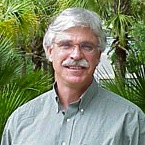As drought conditions intensify in parts of the United States, we asked Climate Access members to tell us how they are talking about the drought in their climate work, and this is what they had to say:

First, and probably something you’ll hear from everyone, is to point out that these droughts are exactly the type of thing that has been predicted by climate scientists for years. We know that the warming atmosphere will disrupt previously stable and reliable rain patterns, and we are beginning to feel those effects. Essentially, droughts like this are exactly what climate change looks like.
Secondly, there are a variety of practices that small farmers (not necessarily large industrial mono-croppers) can use to adjust to decreasing rainfall. It’s important to connect those farmers who are in the field, pioneering sustainable agriculture with others who are farming conventionally. While talking to or about farmers as a “climate change communicator” may only provoke “You don’t know what you’re talking about, Mr. I-work-in-an-air-conditioned-office-building-at-a-computer-all-day,” farmers more readily trust other farmers, who can relate real-world experience. This is part of what makes extension services so vital to the long-term viability of farmers, and so it makes working with extension services a promising avenue.
One thing that’s well understood is that farmers (rightfully) often feel attacked by us environmental/vegan/anti-GMO type folks. They are doing everything they can to do everything right, and increasing environmental regulation is understandably resisted, as it’s basically making them do MORE work for no more money. Instead, it can be helpful to first frame the issue as one of respect and appreciation. “We know farmers work hard to put food on our table, so we’d like to help them find new ways to save money while saving the earth.” sounds MUCH nicer than “Farmers, who are responsible for untold environmental degradation, should be doing more to protect the environment.” It’s a fairly simple framing issue that should make a huge difference!
Right now, many farmers view environmentalists as the enemy. They have good reason to do so. It’s our job to approach them primarily as fans, and friends, to show that we have more common goals than they may realize.
Eric Shen, Transition Fidalgo & Friends:
I talk about the recent studies from national and local scientists (James Hansen and Philip Mote) that are making clear linkages with the extreme weather that we’ve been experiencing and climate change. These studies demonstrate our weather extremes would be highly unlikely without the addition of human-generated greenhouse gases. The other point I mention is the concern scientists are worried about–these types of weather extremes and the frequency of these extremes were not expected to occur so soon.

River Network is an intermediary organization that provides assistance to local grassroots groups who we feel are on the front lines of climate change. For several years we have been talking to our local leaders about what they are seeing on the ground and in the river as watersheds warm — including increased cycles of drought, more intense rainfall, and more widespread and frequent flooding. Our most recent report is called “Burning Our Rivers: The Water Footprint of Electricity”.
For us it is all about freshwater resources and the places people love. We suggest messengers focus on what people in their community are experiencing first-hand (rather than arguing about anthropogenic climate change) and “no-regrets strategies” or positive steps protecting both water supply and energy security. Most frequently these are water and energy efficiency and conservation. The themes of climate uncertainty or weather-weirding have been less helpful than focusing on what we know. “What we expect the weather to be like in our city is changing” and that means for our community should expect to see…(more frequent drought, intense rainfall and increased risk of flooding, etc.)

Thanks for asking. The drought is omnipresent, the impacts are big, and everybody is aware of it. The biggest drive around the impact of the drought and messaging comes from http://stateimpact.npr.org/texas/drought/ which you can reach through drought@stateimpact.org. Interesting is that the relation to climate change is made by the people commenting and not so much the people hosting the site. That is what we see more here, the media/groups tend to talk about climate change indirectly (climate adaptation, water and energy policy). On a citizen level we see more and more people changing the make-up of their lawns, more and more people understand that it does not make sense to poor over $1,000 on their St. Augustine, just to keep it alive. We are seeing more and more native plants and more drought-tolerant grasses popping up. Still, we see policy makers do more of the same: build more pipelines, more water treatment plants, but conservation efforts and grey water usage etc. is still very much in its infancy. Fact is that people are willing to talk about water and drought and seem be taking it seriously. The link to their own behavior is often limited to their own utility bill.

Nearly every day our daily paper has a front-page story on the record-breaking heat and drought. News stories quote weather people, but they do not necessarily relate the heat and drought to global warming. In fact, they almost always include a remark about record-breaking heat in past years or past decades. The newspaper did carry James Hansen’s editorial on global warming.
Arkansas Interfaith Power and Light posts links to items in the news – whether local or national – on our website and our facebook page. I also post a daily Take Action Tip – something positive people can do to conserve energy. In Arkansas, the message on energy conservation is more readily acceptable than the global warming / climate change message.
Our only daily statewide newspaper is very conservative. The local rural newspapers are even more conservative, for the most part. Some political leaders in Arkansas claim that fracking is the best economic thing ever; they know some of their constituents (those who give money to campaigns) are making money off fracking.
In Little Rock in June and in Fayetteville in July, Ark. IPL partnered with the Ark. Sierra Club to hold Town Hall meetings on the Arkansas Governor’s Energy Plan. Panelists made remarks, and then citizens went to the microphone. In Little Rock, the place was packed with about 100 people – all in favor of clean, renewable energy. Two staff members from the governor’s office were there. We had a good news article in the statewide paper the next day.
For Arkansas Interfaith Power and Light, we always start our messaging with references to sacred texts that ask us to care for creation. And we still have rural Arkansas preachers who object to that.
It’s tricky in the South. But it is getting harder and harder for people to deny global warming.
My opinion is that we need to be careful and refrain from gloating with anything resembling an “I told you so” attitude. When children are dying in hot cars, farmers are losing crops, ranchers are losing cows, lakes are losing fish, and food prices are going up, we need to offer helpful suggestions on how people can reduce energy consumption and lower energy bills. When you are unemployed and hungry, you don’t want to hear about your carbon footprint.
People here don’t care how much you know; they want to know how much you care.
After the heat and drought subside, we will continue offering daily tips on reducing energy consumption. We do retrofit projects in low-income areas year-round, and we post pictures and stories to our website and our facebook page on the efforts of our volunteers.
It seems like the choir is always preaching to the choir. Facts don’t change opinions. Personal experience changes opinions. Retrofit projects help with that.
Still, we need a ton of money to combat the conservative deniers who run ads about “clean coal” and “clean natural gas.” We need money to support a message that informs chicken farmers: when your chickens are dying from heat, it is because we are destroying the natural balance of eco-systems and clean, renewable is available and affordable. (Well, it would be affordable if we could elect and re-elect decision makers who will push for incentives for clean, renewable energy.)

We talk about drought as the subject arises with questions to our Horticulture Hotline (M-F, 9-12). We advise home gardeners, whether they’re growing vegetables, ornamentals or lawn, to concentrate their watering to one inch per week, watering early in the day, using soaker hoses. We advise that well-established lawns can go brown in July and August if there’s a drought, and will recover in September when the fall rains begin. We also point out that newly planted trees and perennials may not survive without water, but that older plants with well-established root systems will do fine.
We also remind homeowners with wells that plants are way down on the totem pole and they should consider abandoning vegetable gardens if drought seriously impacts this area (it did in June and early July but we’ve now had enough rain to recoup).

It is my impression that the catastrophic drought and heat in the rest of the country has yet to make much of an impression on the local press or the public in Maine. This is simply astonishing in the context of the reality of progressive global climate instability. With the exception of some of the land trusts and NGOs, the public in Maine is simply not engaged on the issue of climate change. Few except academics are even discussing the plight of the Midwest and the southwest. Maine farm crops in the Midcoast region are reasonably healthy, and life goes on. Many Mainers are insular in their thinking, so much so that they sometimes do not consider themselves to be connected to larger society and economy of the lower 48. As someone who has worked on climate change and public policy, this is the elephant in the living room in many of my discussions with folks that I encounter in my daily activities. It has simply not sunk in that climate change is real, unfolding now, and already impacting their daily lives. The collapse of the lobster market this year is partly attributable to warm waters in the traditional lobster areas off the Maine coast. Similarly, governance in Maine is absent on the issue of climate change, despite the reality that inland Maine ranks 5th in the extent of warming since 1912, and 8th since 1970 (Climate Central).
My bottom line is that it is essential to present the science to the public and to do so without hyperbole, unwarranted passion, or reference to partisan politics. The time for equivocation is long past. I know that many communicators will take issue with my approach. I disagree with the notion that we need to come at the issue obliquely, say, through the controversy of “foreign oil.” I believe that we are fighting the best funded disinformation campaign in the history of our democracy.
Communication on climate change should be brief, composed of short words, and direct statements based on science. It should be matter of fact and without apology. Most of all, the scientific community must speak out rather than hide behind the skirts of the academy. I was recently at a conference with Michael Mann in which he made it clear that scientific reticence at this later hour is simply unconscionable. I agree.
Photo via (cc) Flickr user the Italian voice

